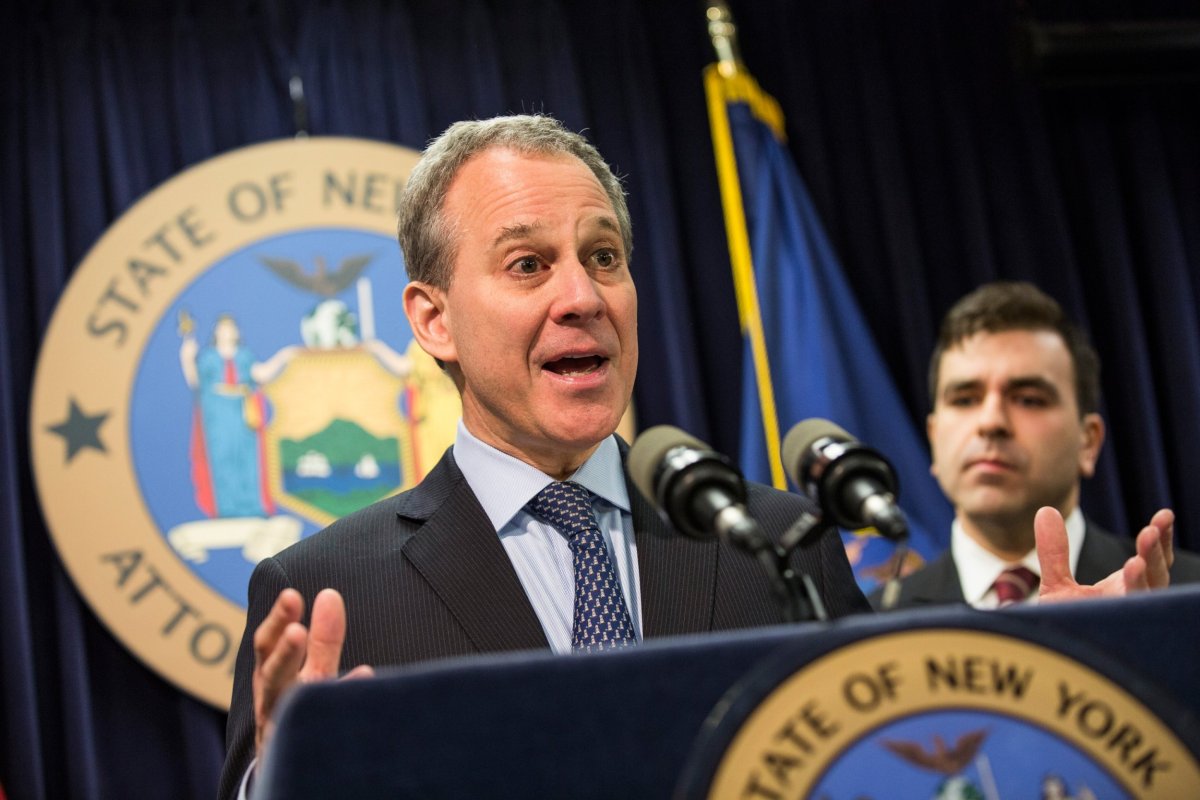This article first appeared on the Cato Institute site.
New York Attorney General Eric Schneiderman demands out-of-state charities disclose all donors for his inspection. He does not demand this of all charities, only those he decides warrant his special scrutiny.
Schneiderman garnered national attention for his campaign to use the powers of his office to harass companies and organizations who do not endorse his preferred policies regarding climate change.
Now, it seems he seeks to do the same to right-of-center organizations that might displease him. Our colleague Walter Olson has cataloged Schneiderman's many misbehaviors.
He's currently set his sights on Citizens United, a Virginia non-profit that produces conservative documentaries. While Citizens United has solicited donations in New York for decades without any problem, Schneiderman now demands that they name names, telling him who has chosen to support the group.
Citizens United challenged this demand in court, arguing that to disclose this information would risk subjecting their supporters to harassment and intimidation.
These fears are not mere hyperbole. If the name Citizens United rings a bell, it's because the organization, and the Supreme Court case of the same name, has become the Emmanuel Goldstein of the American left, complete with Democratic senators leading a ritualistic two minutes hate on the Senate floor.
In 2010, the Supreme Court upheld its right to distribute Hillary: The Movie, and ever since "Citizens United" has been a synecdoche for what Democrats consider to be the corporate control of America.
Is it unwarranted to think that their donors might be subjected to the sort of targeted harassment suffered by lawful gun owners, or that Schneiderman might "accidentally" release the full donor list to the public, as Obama's IRS did with the confidential filings of gay marriage opponents?

The Supreme Court has long recognized the dangers inherent in applying the power of the state against the right of private association.
The cornerstone here is 1958's NAACP v Alabama . For reasons that hardly need be pointed out, the NAACP did not trust the state of Alabama, in the 1950s, to be good stewards of its membership lists. "Inviolability of privacy in group association may in many circumstances be indispensable to preservation of freedom of association, particularly where a group espouses dissident beliefs," wrote Justice John Marshall Harlan II, who went as far as to compare such demands to a "requirement that adherents of particular religious faiths or political parties wear identifying arm-bands."
More recently, Justice Alito pointed out in a similar context that while there are undoubted purposes served by reasonable, limited disclosure requirements, the First Amendment requires that "speakers must be able to obtain an as-applied exemption without clearing a high evidentiary hurdle" regarding the potential harms of disclosure.
But the Second Circuit Court of Appeals has decided it knows better than the Supremes. On Thursday, it ruled that Citizen United's challenge should be thrown out without even an opportunity to prove their case. In the process, it effectively turned NAACP into a "Jim Crow" exception to a general rule of unlimited government prerogative to panoptic intrusion into citizen's political associations.
While there can be no doubt that the struggle for civil rights presented a unique danger for its supporters, this should not mean that only such perils warrant First Amendment protection.
The marketplace of ideas is often fraught with contention, and those who support controversial causes must shoulder some risk. As the late Justice Scalia argued, "running a democracy takes a certain amount of civic courage."
But anonymity in such pursuits serves important purposes, and the premise that concealment of one's identity is a sign of ill-will would have surprised James Madison, who published numerous defenses of the new constitution, convincing his fellow citizens of the virtue of the endeavor; he signed them "Publius."
In our schismatic political climate, many people could suffer if their political views were made widely known. This could include everything from adverse employment actions to outright violence.
Some groups, such as those in the "antifa," have openly advocated violence against political opponents.
It's odd that some on the modern left find themselves on the same side as the state of Alabama in 1958: arguing that those who support some political views should be disclosed to the state, even if violence might result.
Although an appeal has not yet been filed, the Supreme Court should take the case and reverse the Second Circuit, making it clear that a compelling government interest is required before the government can force the disclosure of people's political affiliations.
Trevor Burrus is a research fellow in the Cato Institute's Robert A. Levy Center for Constitutional Studies and managing editor of the Cato Supreme Court Review.
Reilly Stephens is a Legal Associate with the Cato Institute's Center For Constitutional Studies.
Uncommon Knowledge
Newsweek is committed to challenging conventional wisdom and finding connections in the search for common ground.
Newsweek is committed to challenging conventional wisdom and finding connections in the search for common ground.
About the writer
To read how Newsweek uses AI as a newsroom tool, Click here.








